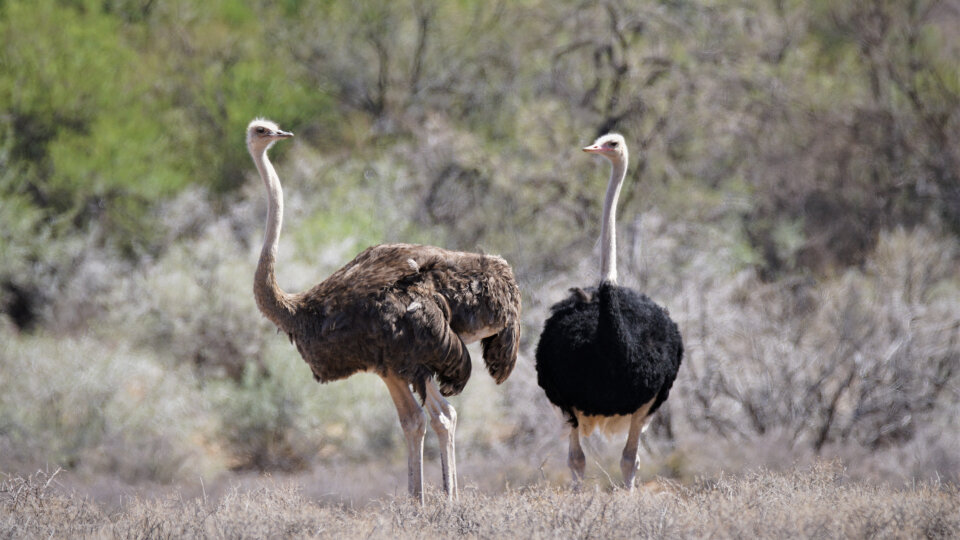11 Dec 2024

Tired Earth
By The Editorial Board

A research team at Lund University has shown that the ostrich is very sensitive to fluctuating temperatures in terms of whether it reproduces. If the temperature rises or falls 5 degrees or more from the ideal temperature of 20 degrees, the ability of these long-necked birds to lay eggs is noticeably affected.
Over 20 years of monitoring of 1,300 ostriches in South Africa, the researchers were able to establish that females laid up to 40 percent fewer eggs if the temperatures fluctuate to low or high temperatures. In a new study, published in Science Advances, researchers have delved even deeper into the secrets of ostrich genetics.
"We discovered that genes that increase heat tolerance also decrease cold tolerance and vice versa. So even if the ostrich can evolve to cope with a warmer environment, it will compromise its ability to handle colder periods," explains Mads Schou, a researcher at Lund University who wrote the article together with, among others, colleague Charlie Cornwallis.
Climate change will not only lead to rising average temperatures, but according to current climate models, will also increase temperature fluctuations. Therefore, the ability of animals to cope with both hot and cold periods becomes crucial to their chances of survival.
"Previous research on vertebrates has focused on the physiological and behavioral responses to rising temperatures. The knowledge about the animals' genetic potential to adapt to fluctuating temperatures is therefore limited," says Mads Schou.
Evolutionary adaptation is rife with trade-offs. An increased body size of an elephant male, for example, increases its competitiveness but at the same time requires more food. The work of the Lund researchers shows that heat and cold tolerance are intertwined in such a balance. If this proves to be a general phenomenon across animals then they will be more vulnerable to climate fluctuations than previously thought.
"We were initially encouraged when we discovered that ostriches possess the genetic capability to adapt to both warmer and colder temperatures. However, unfortunately for ostriches it turns out that they can't do both," concludes Mads Schou.
Source : phys.org
Comment